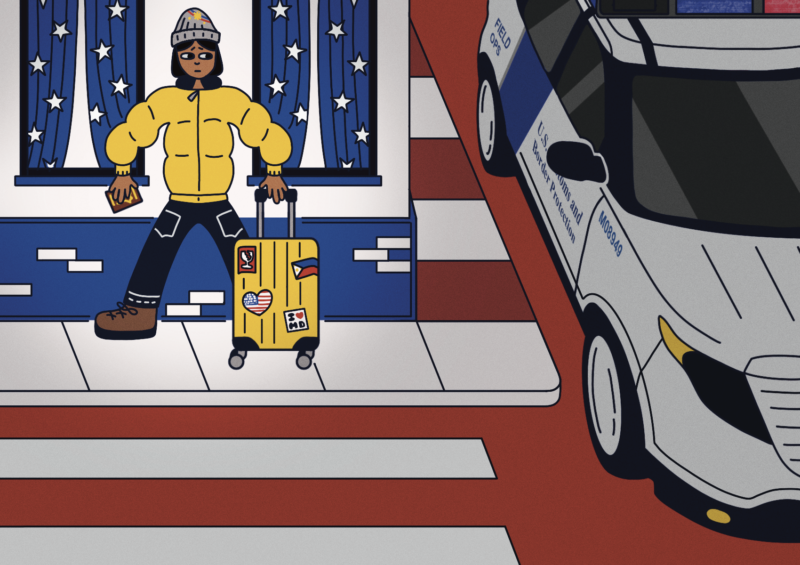WITH THE tap of a finger, efforts devoted to home cooking are reduced to a brief anticipation of the arrival of food ordered online. This luxury has prompted many to rely on food delivery services, more so with stringent quarantine protocols in place.
While delivery riders have assumed a frontline job to provide customers with essentials, their toils are often left undercompensated. Behind the expediency of food delivery services are workers struggling with long hours on the road and cases of unfair labor practices.
Navigating the industry
Food delivery companies have been advantageous to consumers and workers alike, as these companies have provided delivery riders with a source of income at a time of economic recession. This opportunity motivated Karl Alfonso, a Foodpanda delivery rider, to apply for the company as he intends to help ease their increasing household expenses.
To make a living, Alfonso works from 10:30 PM to 7:30 AM while abiding by the firm’s policies. At Foodpanda, workers are assessed based on their performance which are reflected on their batch numbers. He details that riders who work diligently—with no canceled and declined orders—ascend to a higher batch number, while those who fail to meet the established criteria are relegated to a lower batch number. The higher their batch numbers are, the bigger the incentives they receive. He further notes that cancelling orders warrants a possible suspension.
Alfonso finds that these protocols can be unfair in the event of fake bookings. He discloses that the riders feel coerced by the company’s policies to cancel orders every time they are scammed by customers. “Kaysa mag-abono [ako] ng mga 1,000 [pesos] plus na order, papa-cancel [ko] na lang kasi [wala akong] pang-abono (Rather than to pay for about 1,000 pesos worth of order, I would just cancel it because I don’t have the money to pay for it),” he explains.
Nonetheless, they are held accountable for these hoax orders. “Kami pa rin ang nasususpend. [Two days] ang kadalasang [suspension] pag na-fake booking ka. (We are still the ones getting suspended. We usually get two days of suspension when we get fake bookings),” he shares.
Moreover, Alfonso laments the apparent indifference of the company towards riders’ suspension from fake bookings. He recounts, “Kahit anong hinaing ng mga rider [tungkol sa fake booking], parang hindi nila [kami] pinapansin (No matter how much riders complain about fake booking, they seem to ignore us).”
Following these hardships, delivery riders continue to bear the brunt of the company’s system as they endure grueling working conditions.
Wearing out the tires
As the pandemic forces companies to adapt, the on-demand delivery industry is no exception. Experiencing these changes firsthand, GrabFood delivery rider Herodotus Manaog earnings have decreased as a result of this change.
“Dati mga eight hours kumikita na kami ng 1,000 [pesos]. Ngayon umaabot na [ng] mga 12 hours bago ganong kalaki ‘yung [aming] kita (Back then, eight hours of work would earn us Php 1,000. Nowadays, we have to work for 12 hours to earn as much),” he says. He believes this is due to severe unemployment, which has forced many to apply to service jobs like Grab.
Alfonso adds that the long working schedule has continued to conflict with his education as a third year Civil Engineering student. “[Minsan napapasobra] ako sa work na hindi ko na napapasukan yung [mga] subject ko kasi hindi [kinakaya] ng katawan kong bumangon (Sometimes I work so much to the point that I can’t attend my subjects because I can’t get up),” he illustrates. Despite this, he explains that he juggles work with his studies to help provide for his family.
Similar to Alfonso, Manaog’s commitment to his family motivates him to continue in the industry despite the inherent struggles. Through his experience, he has recognized the perks of freelance work. “Katulad sa Grab, [kami ang] sariling [boss] namin. Minsan kung may lakad yung family namin, madali ako makasama (In Grab, we are our own bosses. This makes it easy to join my family when they have plans),” he elaborates.
A mile at a time
As the economy confronts an upheaval, finding a living becomes more difficult. This is a shared reality among many riders like Manaog who hold onto their jobs while better opportunities remain unguaranteed. “Hindi ko pa rin iiwan yung kay Grab kasi malaking tulong pa rin ito (I am not yet going to leave Grab because it has been a big help),” he expresses.
With a different route in mind, Alfonso aims to use his earnings to supplement future goals.“[Balak ko mag-ipon] ng pang-small business. [At] kung makapagtapos ako bilang Civil Engineer, [magfofocus] na lang muna ako [doon] dahil ‘yun naman talaga pangarap ko. (I plan to save up for a small business. And if I graduate as a civil engineer, I would focus on that because that is my dream),” he says.
Although prefaced with different goals in mind, the experiences of delivery riders demand recognition. At the end of the day, behind their brief interactions with customers lies a road paved by work that both limits and enables them.







